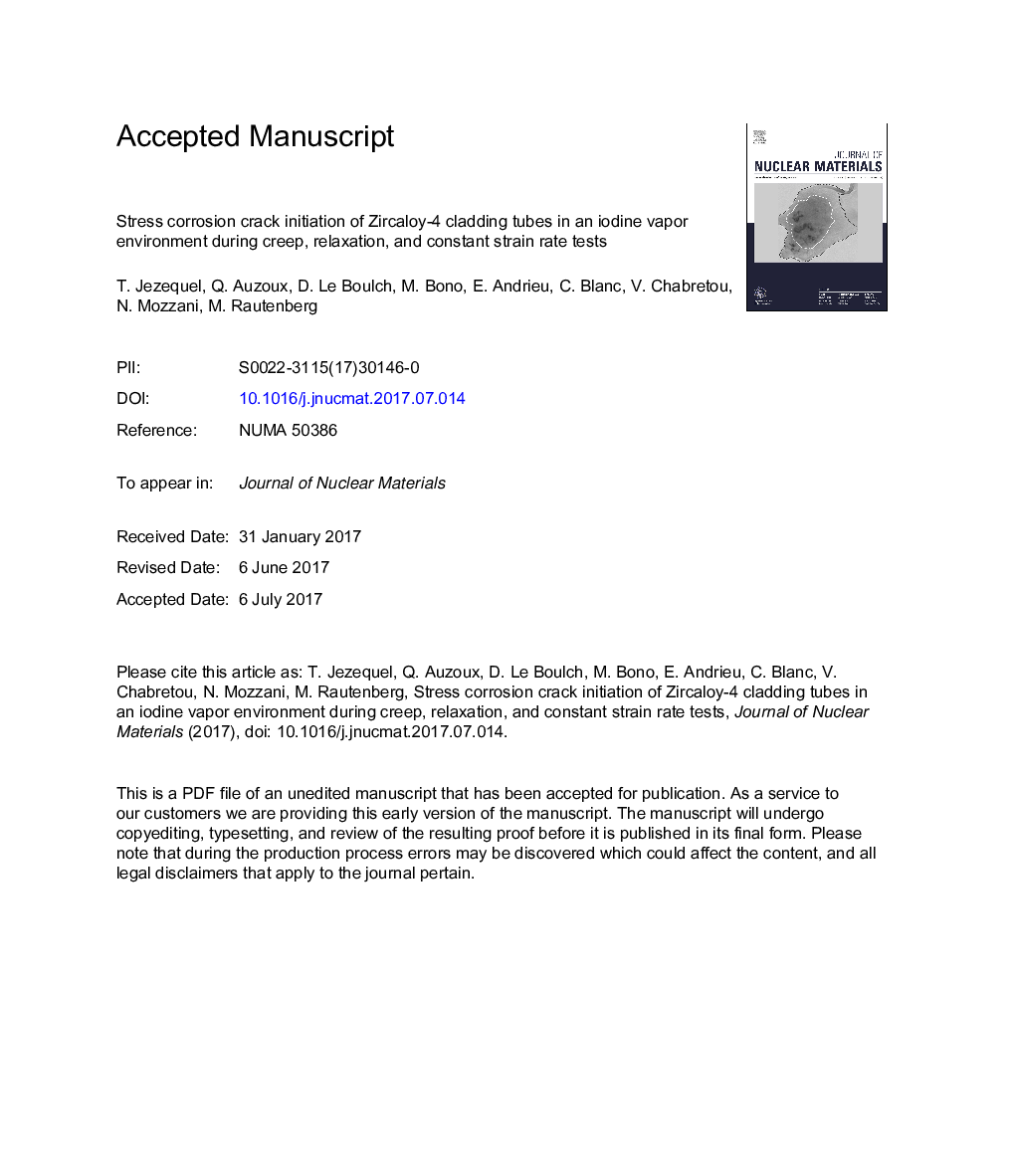| Article ID | Journal | Published Year | Pages | File Type |
|---|---|---|---|---|
| 7963609 | Journal of Nuclear Materials | 2018 | 22 Pages |
Abstract
During accidental power transient conditions with Pellet Cladding Interaction (PCI), the synergistic effect of the stress and strain imposed on the cladding by thermal expansion of the fuel, and corrosion by iodine released as a fission product, may lead to cladding failure by Stress Corrosion Cracking (SCC). In this study, internal pressure tests were conducted on unirradiated cold-worked stress-relieved Zircaloy-4 cladding tubes in an iodine vapor environment. The goal was to investigate the influence of loading type (constant pressure tests, constant circumferential strain rate tests, or constant circumferential strain tests) and test temperature (320, 350, or 380 °C) on iodine-induced stress corrosion cracking (I-SCC). The experimental results obtained with different loading types were consistent with each other. The apparent threshold hoop stress for I-SCC was found to be independent of the test temperature. SEM micrographs of the tested samples showed many pits distributed over the inner surface, which tended to coalesce into large pits in which a microcrack could initiate. A model for the time-to-failure of a cladding tube was developed using finite element simulations of the viscoplastic mechanical behavior of the material and a modified Kachanov's damage growth model. The times-to-failure predicted by this model are consistent with the experimental data.
Related Topics
Physical Sciences and Engineering
Energy
Nuclear Energy and Engineering
Authors
T. Jezequel, Q. Auzoux, D. Le Boulch, M. Bono, E. Andrieu, C. Blanc, V. Chabretou, N. Mozzani, M. Rautenberg,
